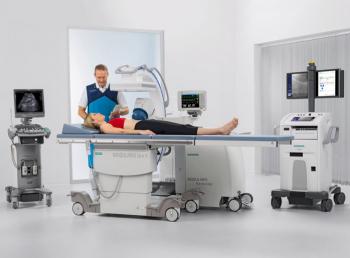


If the disease is detected late because it only appears at an advanced stage, it must be treated urgently.
Pancreatic cancer is a dreaded cancer whose risk factors are poorly understood, but whose incidence is increasing dramatically. Its symptoms are not very specific and appear when the disease is already at an advanced stage. It is difficult to slow down the progression of the disease. "Pancreatic cancer kills more people than road accidents," says Professor Pascal Hammel, head of the digestive oncology department at Beaujon Hospital (Clichy, APHP). And in ten years, it will kill more than all other cancers except lung cancer".
The disease is very serious, but when the diagnosis is made while the tumor is still operable (20% of patients), the five-year survival rate improves to 20-30%. "The efficiency of the care pathway is therefore of paramount importance," insists Prof. Hammel. Studies have shown that when the specialist sees a patient whose CT scan is more than a month old, there is a 20 % risk that small metastases have appeared, making the tumor no longer operable," says the doctor.
Diagnosis is faster if the patient is jaundiced (15 days earlier) or worried (11 days).
To better understand the care pathway of the 13,000 or so new patients diagnosed each year, the doctor launched the Repère survey, under the aegis of the Arcad Foundation (Aid and Research in Digestive Cancer). For this study published in the Bulletin du cancer, more than 350 physicians (62 oncologists or gastroenterologists specializing in oncology and 300 general practitioners) and 200 patients were questioned about the delays between the appearance of the first symptoms and diagnosis.
The main signs that motivated the first consultation were weight loss (65%), fatigue (53%) or anorexia (49%). "The median estimated time between the onset of the first symptoms and definitive diagnosis of pancreatic cancer ranged from 41 to 65 days," write the authors. Diagnosis is faster in the case of jaundice (15 days earlier) or patient anxiety (11 days), but delayed "in the case of prescription of symptomatic treatments by the general practitioner" (14 days longer).
72% of patients receive supportive care "No question of talking about mass screening", except perhaps for certain familial or genetic forms, says Pr Hammel. All the more so as it requires invasive examinations "and there is no blood screening for the early forms of this cancer". But "when evocative symptoms are combined in a patient who is old enough to have this cancer (69 years old on average, editor's note), you have to think about the pancreas! pleads the doctor. And if jaundice appears, the patient must go to the hospital within three days".
Another finding of the Benchmark study is that 72 percent of patients receive supportive care. "Unsatisfactory" for the authors, especially in pain management: only 23% of patients met with a specialized doctor. "It should be 100%," asserts Pascal Hammel. Pancreatic cancer is one of the most painful, and a patient whose pain is not well managed eats less well, sleeps less well, tolerates chemotherapy less well... The chances of controlling his disease are reduced."
To improve the speed and quality of treatment, the "Pancreas Emergency" study, currently underway, is exploring the feasibility of starting treatment "less than 14 days after the first consultation with a specialist in at least two-thirds of patients," explains Pascal Hammel, who believes that "it is essentially a question of organization. Patients suspected of having pancreatic cancer should be given priority".